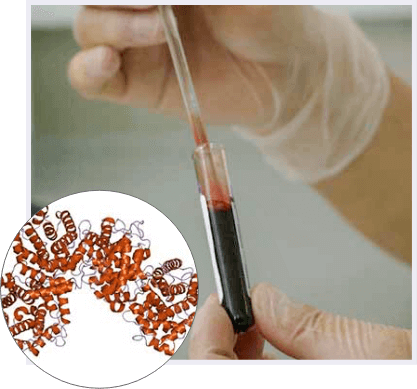Shoulder pain can cause a lot of discomfort to anyone. It can also affect a person’s ability to do physical activities like playing sports, going to work, or even accomplishing daily household chores. It could be a long-term problem for anyone.
For this reason, people suffering from shoulder issues should consider some form of shoulder treatment. The most common procedure is surgery. However, not everyone wants to go under the knife. This is because there are certain risks involved when it comes to having a surgical procedure done on the shoulders and success is not certain.

Although surgery involving general anesthesia is typically safe, there is a risk of complications such as stroke, heart attack, pneumonia, or blood clot for people with certain conditions or health concerns. These include:
Patients undergoing surgery for their shoulders may also suffer from nerve damage and shoulder infection. Also at slight risk are older adults and those that have serious medical problems or have been undergoing more extensive procedures.
However, it is important to note that only a small percentage of patients experience complications after surgery. A much more common complaint is stiffness and ongoing pain after having surgery on their shoulders.
For people who don’t want to undergo surgery for their shoulders, there is a shoulder treatment alternative that is noninvasive — cell therapy. It is a part of the broader area of medicine called “regenerative medicine.” Cellular treatments involve harvesting cells from a person’s bone marrow and then injecting them to the affected body part. These cells are useful for reducing inflammation and repairing the shoulder’s damaged bones, cartilages, ligaments, tendons, or nerves. Compared to surgery, cell therapy has the following advantages:
Unlike orthopedic surgery, cell injection is minimally invasive. By using thin-needles, cells are injected into the affected body part to begin the process of self-repair. This process has lower failure risks and complications compared to surgery, where nerves, blood vessels, and lymphatic vessels are cut and may cause significant complications.
Some patients are not comfortable with general anesthesia due to the fear of pain during or after the procedure. There are also those who experience anxiety thinking that they may have awareness during the operation. Other issues like fear of death, nausea, needle phobia, and even paralysis raise some concerns as well. Patients undergoing our cell injections don’t have to worry about the issues associated with general anesthesia.
A surgical procedure requires making incisions or cuts through the skin, muscle, and other layers of the body. This may leave visible scars on the patient. Because cellular treatments are done through the use of injections only, scarring will never be an issue.
The recovery time for cell treatments is shorter than traditional orthopedic surgery. Patients who have gone through cell injection are not required to be confined in the hospital and can be discharged the same day of the procedure.
It is general knowledge that recovery after surgery may take some time, depending on patient’s condition and the type of procedure done. More often, those who go under the knife should wait for several weeks before going back to their normal daily activity. Compared to surgery, cell therapy require minimal recovery time. This means patients can get back to normal daily activity within a week and there are minimal restrictions involved.
Multiple pain-reducing medications are usually required to manage post-surgical pain. It may take a month or two before someone who undergoes surgery can stop taking pain medications. Cell-based therapies require far less need for pain medication.
Although cellular therapy has been around for quite some time already, there are certain things to know for someone who is planning to undergo cell injections for shoulder pain.
In the United States, the cost of cellular treatment depends on the clinic and the treating physician. Gathering of cells from the bone marrow can only be done by a trained licensed medical professional.
Drawing of cells from the pelvic bone is a painless procedure. Injections, however, can cause some minor discomfort. The injection site might feel sore for a week (regular injections have the same effect). Doing too many physical activities is not advisable and talking NSAIDs is only allowed after a few weeks although we can give you pain medications if needed as part of your recovery.
Cell-based treatment stimulates the body’s natural healing response. It usually takes three to eight weeks for a person to feel improvement.
In general, a patient who has undergone cell therapy would likely feel little discomfort. Although some people report experiencing side effects such as pain and discomfort, these typically do not last for more than a week at most. There is no report of long-term negative side effects.
Many patients who have had cell injections are satisfied with the results and are willing to undergo the process again. Data from the National Institute of Regenerative Medicine reveals that the majority of knee and hip patients reported major relief.
When it comes to shoulder cell therapy, it is important to find a treatment center that offers quality service. Boston Applied Biologic, a regenerative medicine facility in Framingham, MA, is led by medical director Janet D. Pearl, MD, MSc. She is board-certified in Regenerative Medicine, Pain Medicine, and Anesthesiology. The center offers a customized treatment program based on client needs, with the goal of improving function and quality of life.
Boston Applied Biologics offers only cellular treatments that are allowed by the FDA. It makes sure that its treatment programs are backed by scientific studies that have been published in reputable medical journals. Procedures like live cord or live amniotic cells are not being offered at the center due to the risks they pose.
The treatment center’s cell-based treatment is often a combination of:

If you are feeling discomfort in your shoulder’s joints, call us at Boston Applied Biologics for a consultation. We are always ready to answer your inquiries. When you contact us, our team of professionals who are trained in cellular treatments can assess whether our treatment is right for you. We can also provide you with what you need to know about the injections and how they can benefit you in the long run.
IMPORTANT! This information is for educational purposes only and is NOT intended to replace the care or advice given by your physician. Boston Applied Biologics is not offering regenerative cell therapy or other regenerative therapies as a cure for any condition, disease, or injury. No statements or implied treatments on this website have been evaluated or approved by the FDA. This website contains no medical advice. All statements and opinions provided by this website are provided for educational and informational purposes only and we do not diagnose or treat via this website or via telephone. We do not claim that any applications, or potential applications, using autologous regenerative cells and other regenerative cells are approved by the FDA, or are even effective. We do not claim that these treatments work for any listed nor unlisted condition, intended or implied. Always seek the advice of your physician or other qualified health provider before starting any new treatment or with any questions you may have regarding a medical condition. For more information see our Medical Disclaimer.
Copyright © 2025 Boston Applied Biologics, LLC. All Rights Reserved.
Notifications